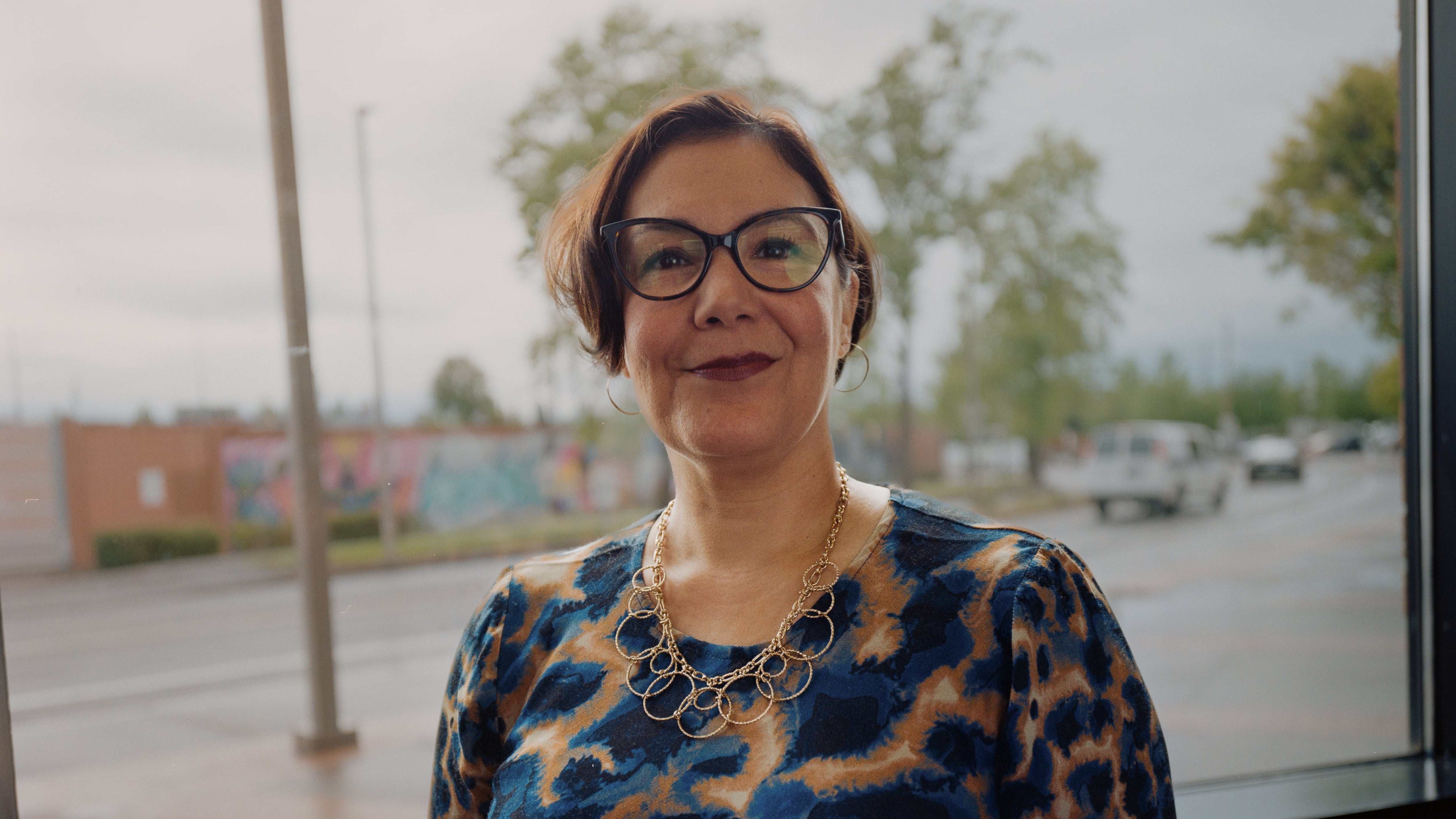Residents of the Buckman neighborhood left a meeting with Multnomah County Chair Jessica Vega Pederson and her staff about the proposed deflection center on Southeast Sandy Boulevard with more questions than answers last night.
Plans for the center have been underway since March, when the Oregon Legislature passed House Bill 4002, reforming Measure 110 by recriminalizing possession of small amounts of illicit drugs. The new law requires Oregon counties to implement programs that deflect people from jail. It goes into effect Sept. 1.
Details about the deflection center have been hard to come by, and last night’s meeting was no exception. Community members peppered county staff with questions about how the center will operate. What makes someone eligible for deflection? How many times can a person choose deflection over entering the criminal justice system? What happens to a person’s belongings or pets if they are picked up and taken to the deflection center?
Alicia Temple, an adviser to Vega Pederson on HB 4002, fielded many of the questions, with help from fellow staffer Hayden Miller and Cmdr. Craig Dobson of the Portland Police Bureau. Vega Pederson has been working out details on the deflection center in private sessions with District Attorney Mike Schmidt, his elected successor Nathan Vasquez, Portland Police Chief Bob Day, representatives from the mayor’s office, and mental health experts.
At Wednesday night’s event, held in the Multhomah County Building, most of the answers to the public’s questions were variations of “I can get back to you on that answer” and “We don’t know yet.”
That lack of information left some in the audience questioning the county’s plans.
“It’s hard to have confidence,” Buckman resident Elijah Probst said. It’s absolutely necessary to help people struggling with addiction, but Probst questions the “success of the program as they’re rushing it.”
Patricia Cain, who’s been living in the Buckman neighborhood for 21 years, said the “community understands this issue [of drug addiction] very well,” but the program “is not ready for implementation.”
County commissioners have voiced similar complaints for months. At a county board meeting on Tuesday, Commissioner Julia Brim-Edwards complained that Chair Vega Pederson and her staff haven’t provided enough detail about the deflection center, even to the board, which should have a say in its operation.
“To date, the commission hasn’t been provided a lot of information,” Brim-Edwards said. She wants to know what social service provider will run the deflection center, what services will be provided, how people will be transported to and from the center, and what the center will promise neighbors in terms of security.
Brim-Edwards has been working on her own plan for a “sobering center,” where police could drop intoxicated people who need help while alcohol or drugs wear off. The Legislature appropriated $25 million for Multnomah County to build such a facility. Brim-Edwards released her proposal in April, saying it would fill a gap left in 2019, when an old sobering center closed amid concerns about safety for staff and patients. So far, the deflection center doesn’t look anything like what’s in her plan, Brim-Edwards has said in various meetings.
Commissioner Sharon Meieran, an emergency room doctor and consistent critic of the county’s approach to drug treatment and mental health, said the center made no sense because it would lead people nowhere.
“What really gets lost in a lot of these conversations is the elephant in the room, which is that we don’t have places for people to go for either shelter or treatment,” Meieran said.
Instead of investing in the building on Sandy, which will be temporary and won’t offer sobering services, Meieran says Multnomah County should consider other solutions, including a mobile service that takes people to treatment.
“What alternatives were considered?” Meieran asked. “What else could we be doing that would achieve the goals of deflection? They’re way cheaper, more effective, and would not cause the disruption of a facility to community.”
Brim-Edwards said she was disappointed that the July 11 commissioner meeting on the center had been cut short because Multnomah County Health Department director Rachael Banks had a prior engagement. Tuesday’s meeting was cut short, too, because Vega Pederson, joining by video, was ill with COVID. She said there would be more time for questions next week, when staff from the health department would return for more questions.


